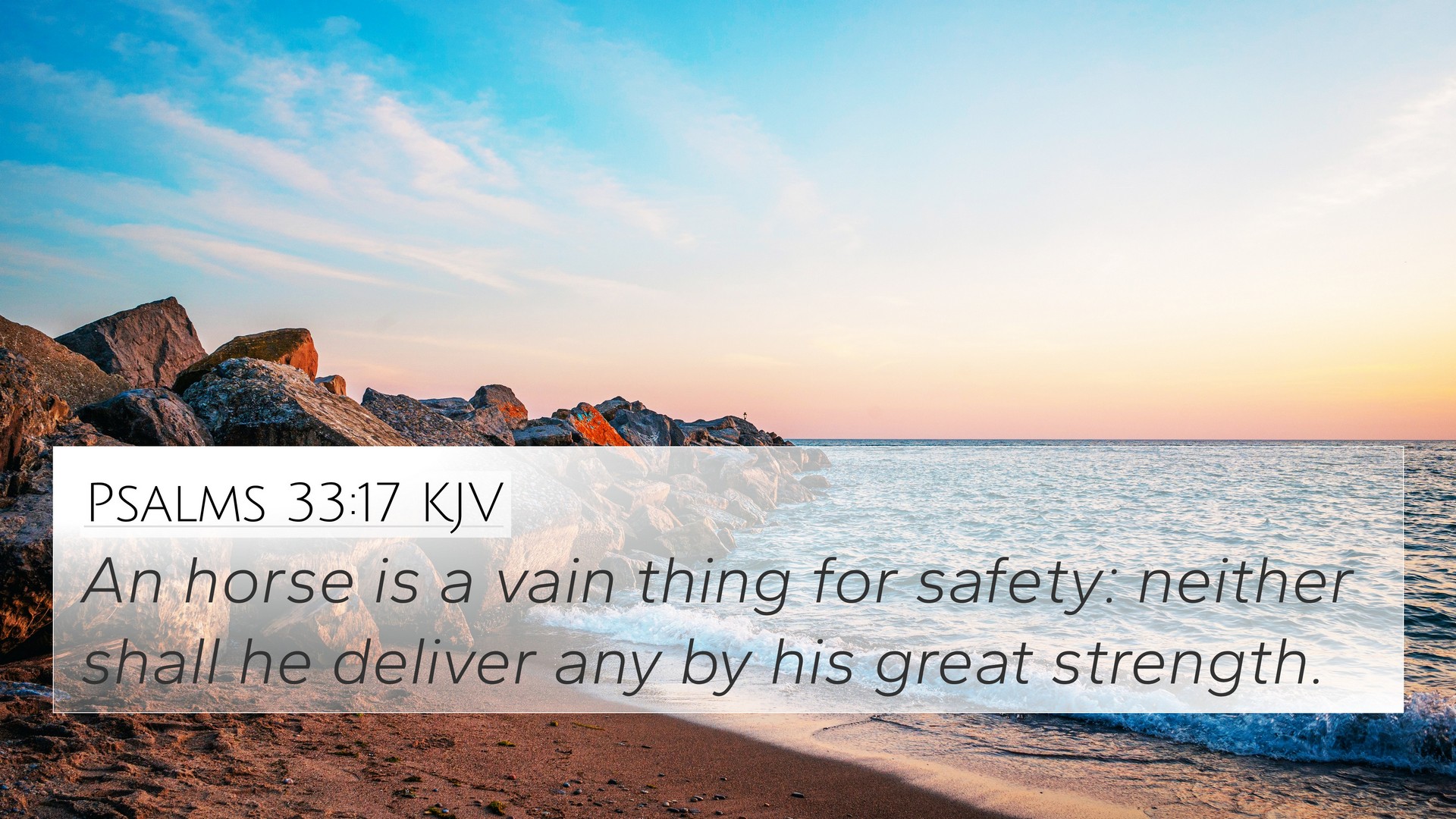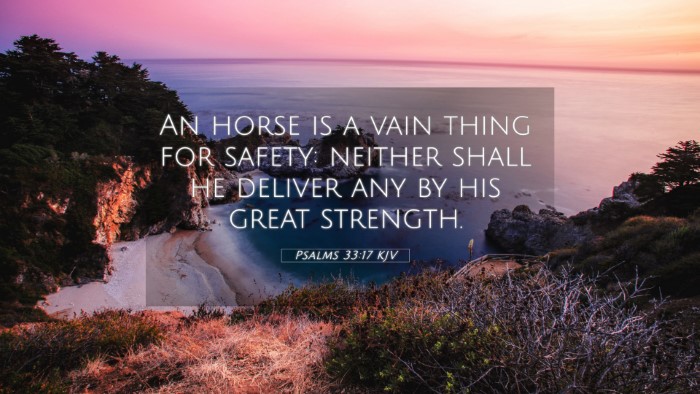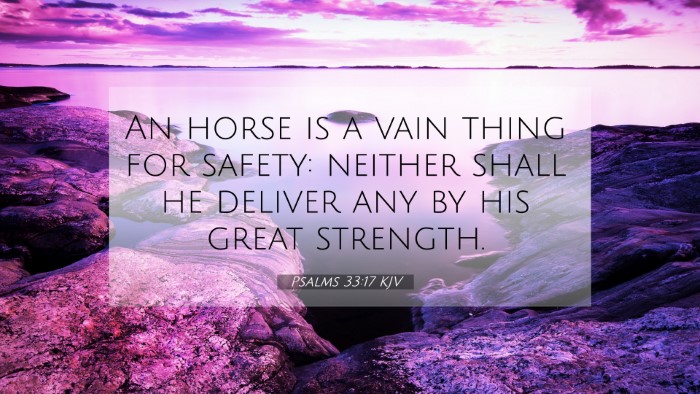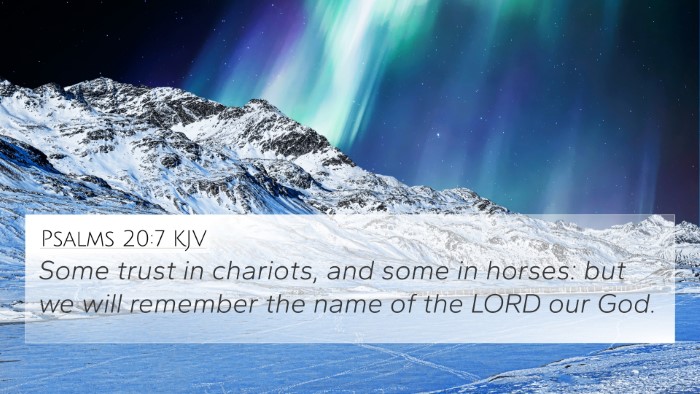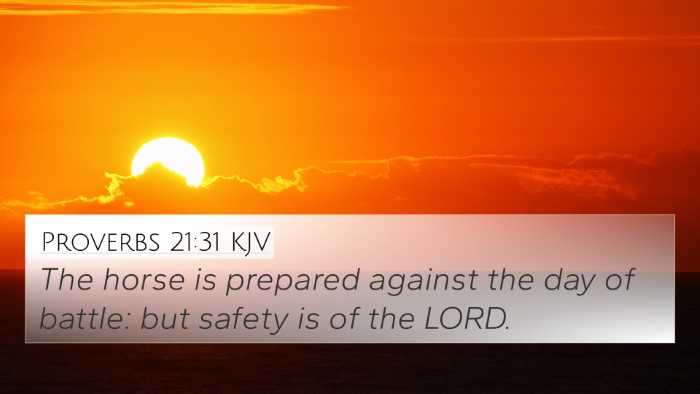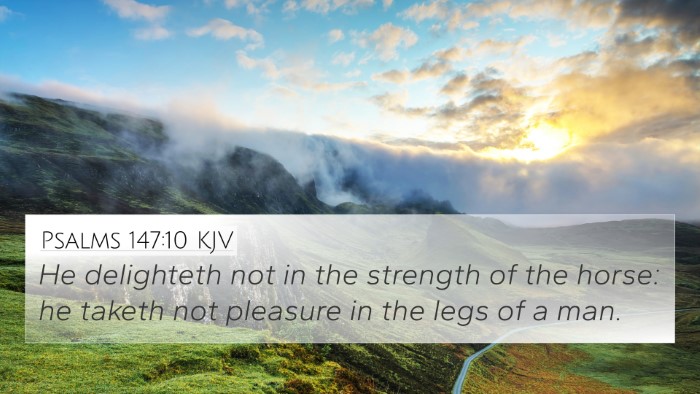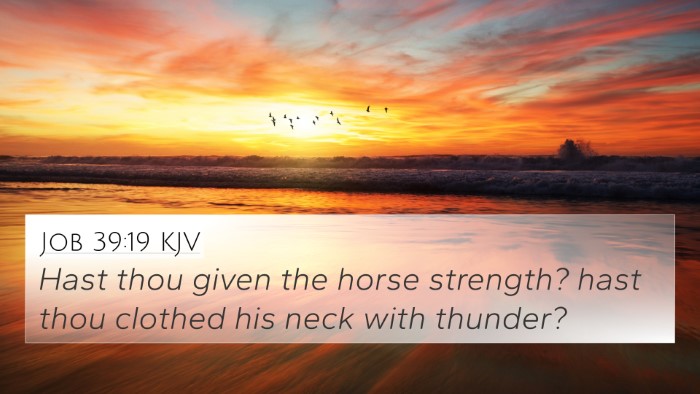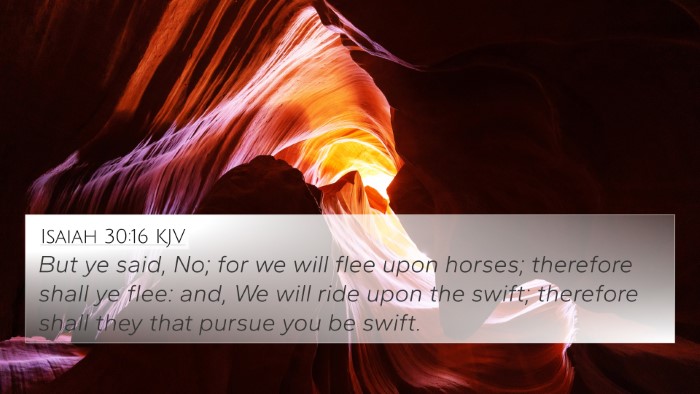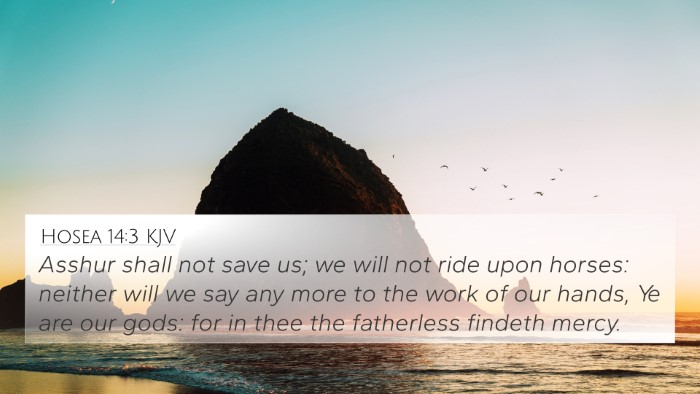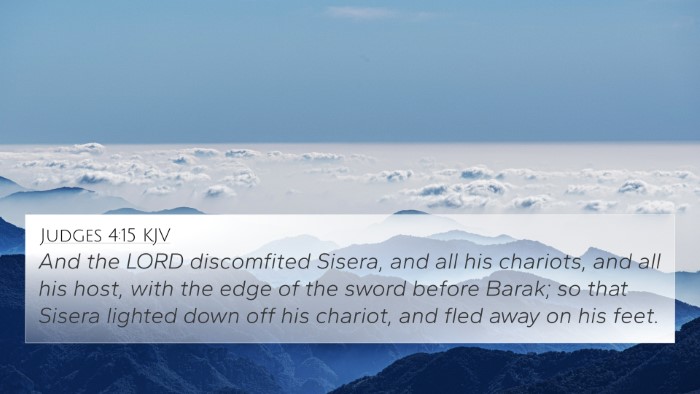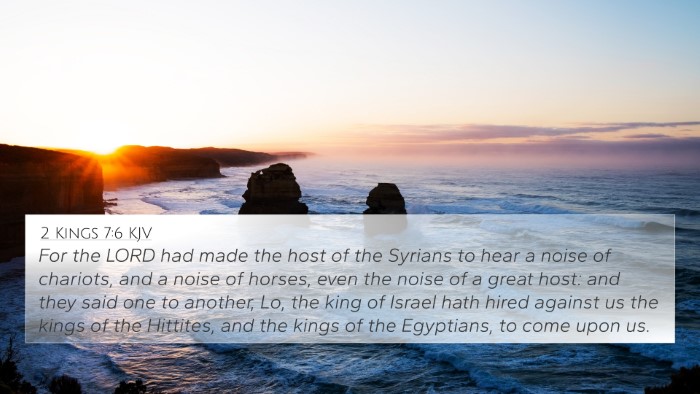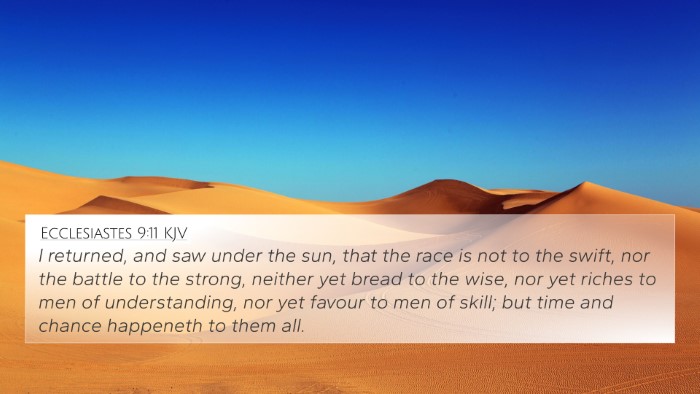Understanding Psalms 33:17
Psalms 33:17 states: "A horse is a vain thing for safety: neither shall he deliver any by his great strength." This verse is a profound reminder of the limitations of reliance on physical strength and external means of security.
Summary of the Verse's Meaning
In examining this verse, the insights from Matthew Henry, Albert Barnes, and Adam Clarke suggest that:
- Dependence on God: The verse emphasizes that true safety does not come from powerful military forces or strength, represented by the horse, but rather from trusting in the Lord.
- Limitations of Human Strength: All human strength is ultimately inadequate for salvation or security. The "great strength" is seen as futile when it comes to divine protection.
- The Importance of Faith: The psalmist encourages believers to place their faith and trust in God's sovereignty rather than in their own power or resources.
Commentary Insights
Matthew Henry reflects on the idea that while horses were considered a symbol of might in ancient times, they are ultimately powerless without God's support. He points out that nations often boast in their military might, yet when facing divine judgment or calamity, no amount of strength can save them.
Albert Barnes expands on this by noting that the text is a caution against overconfidence in human resources. Horses, though strong, cannot deliver in times of danger, highlighting the futility of relying solely on oneself or one's own means of protection.
Adam Clarke supports these interpretations by discussing the symbolic nature of the horse as representative of man's strength and cleverness. He argues that true deliverance comes from God, who is capable of saving and protecting in ways that human strength cannot comprehend.
Bible Cross References
Psalms 33:17 can be cross-referenced with several other scriptures that emphasize the theme of reliance on God versus human strength:
- Proverbs 21:31: "The horse is prepared against the day of battle: but safety is of the LORD."
- Isaiah 31:1: "Woe to them that go down to Egypt for help; and stay on horses, and trust in chariots, because they are many; and in horsemen, because they are very strong; but they look not unto the Holy One of Israel, neither seek the LORD!"
- Jeremiah 17:5: "Thus saith the LORD; Cursed be the man that trusteth in man, and maketh flesh his arm, and whose heart departeth from the LORD."
- Psalms 20:7: "Some trust in chariots, and some in horses: but we will remember the name of the LORD our God."
- 1 Samuel 17:45: "Then said David to the Philistine, Thou comest to me with a sword, and with a spear, and with a shield: but I come to thee in the name of the LORD of hosts, the God of the armies of Israel, whom thou hast defied."
- 2 Corinthians 1:9: "But we had the sentence of death in ourselves, that we should not trust in ourselves, but in God which raiseth the dead."
- Proverbs 3:5-6: "Trust in the LORD with all thine heart; and lean not unto thine own understanding. In all thy ways acknowledge him, and he shall direct thy paths."
Thematic Connections
This verse, along with its cross-references, forms a thematic connection emphasizing faith over fealty to human strength. It invites reflection on the connections between verses that highlight the importance of relying on divine power.
Conclusion
In conclusion, Psalms 33:17 challenges believers to reflect on where they place their trust. The consensus among biblical scholars illustrates that God's power surpasses human capacities, and true safety comes from faith in Him, which is a recurring theme throughout the Scriptures. Engaging in comprehensive Bible cross-referencing can deepen one's understanding of these concepts, providing insight into the relationship between Old and New Testament teachings and reinforcing the importance of reliance on God.
